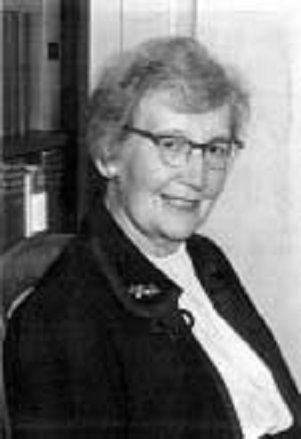REVIEW POTPOURRI – Poet: Abbie Huston Evans
 by Peter Cates
by Peter Cates
Abbie Huston Evans
The 1989 anthology Maine Speaks has a poem from the Bristol native Abbie Huston Evans (1882-1983). Before sharing it, I offer the biographical details on her life provided in the above text, as they give a good maximum summation with minimum paragraphs:
“As a teenager, Evans moved with her family from her native Bristol, an area her mother’s family had settled in 1730, to Camden. She realized she wanted to be a poet when she heard her father read William Wordsworth’s Ode on Some Intimations of Immortality one Sunday in his sermon at the church where he was pastor. Fate set back her plans, however, when she was 18 years old; an illness that threatened her eyesight kept her from reading and writing for ten years. She spent a great deal of her time outdoors, in particular walking the Camden Hills with a young friend who had been her pupil in Sunday school, Edna St. Vincent Millay.
“Evans entered Radcliffe College at 28, and graduated Phi Beta Kappa. She worked as an English teacher, a Red Cross volunteer during World War I, and a social worker among the families of miners and steel-workers. She eventually went back to teaching, in Philadelphia, coming back during the summers to Maine.
“Recognition as a poet came slowly to her. She remained in relative obscurity until the 1960s, when she received an honorary doctorate from Bowdoin College and several poetry prizes. Her Collected Poems, published in honor of her 19th birthday, at which time she was still writing, has received wide acclaim.
“Evans said of the Maine countryside, ‘It’s the kind of place I would have made, had I been God. ‘ She studied the natural world so as to understand the place of the human spirit within it, and to understand the relationship of any small part of it to the universe at large.”
The anthologized poem is Silhouette from 1950. It has a narrative power of exceptional dimensions in its depiction of the combination of acceptance and regret we all might feel at the end when we try to assess our own lives. The rhythms of its stanzas are quite captivating:
“The lamp flared in a quick gust. -“Yet,” I said,
” ‘You’ve had a full life, Sarah. “-“That depends;
” ‘If you mean busy, I suppose so. Yes.
” ‘What with the old folks-and Aunt Jane-and Mandy.’
“She took her basket and got up to go,
“Her hand a gaunt root wrapped about the handle.
“Nothing ever took me off my feet.
“That’s the whole story. -Well,’ she said, ‘good night.’
“I held the lamp to light her down the path.”
Responsible journalism is hard work!
It is also expensive!
If you enjoy reading The Town Line and the good news we bring you each week, would you consider a donation to help us continue the work we’re doing?
The Town Line is a 501(c)(3) nonprofit private foundation, and all donations are tax deductible under the Internal Revenue Service code.
To help, please visit our online donation page or mail a check payable to The Town Line, PO Box 89, South China, ME 04358. Your contribution is appreciated!



Leave a Reply
Want to join the discussion?Feel free to contribute!